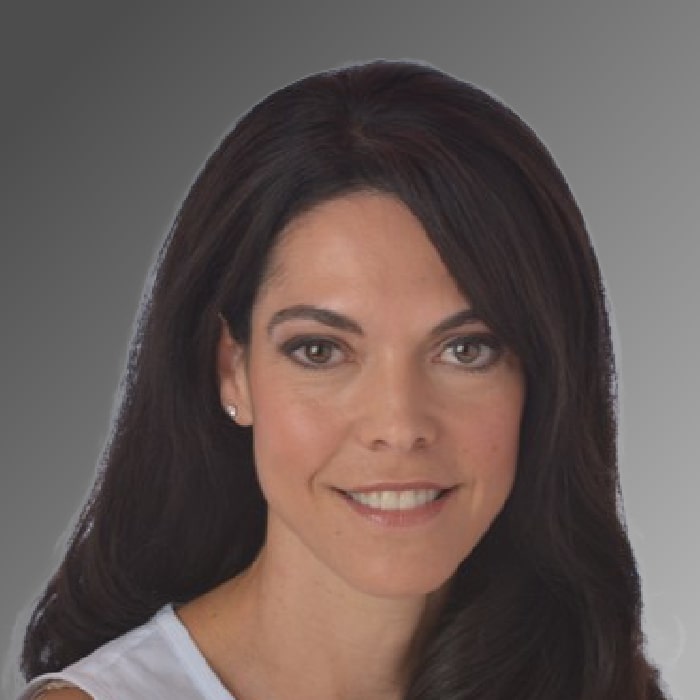Alexa Fund’s Kevin Crosby Seeks Diversity among Partners, Customers, and Teammates
May 13, 2024
Interviewed by Nicolas Sauvage on June 25, 2021
Alexa Fund Principle Kevin Crosby prioritizes implementing mechanisms that help scale and support the startups participating in Amazon’s Alexa Fund. Kevin joined TDK Ventures President Nicolas Sauvage on Corporate Venturing Insider to discuss the importance of building a strong team to gain insights that can inform investment decisions and how building through and focusing on a specific area of expertise can drive significant impact.
Background
Kevin has been working with startups and venture capital since before he finished his undergraduate degree at the University of Michigan. Opting not to pursue a Ph.D., he instead set about learning all he could about the business world, especially the financial aspects. Working in innovation teams in the building products and materials industry, he came into the realm of corporate venture capital, which concentrated his thinking on how to stimulate entrepreneurship, matching it with funding, and developing the business.
He returned to Ann Arbor for an MBA in venture capital and entrepreneurship, where he worked with a series of pre-seed and early-stage companies. Some prospered and went through an IPO or acquisition, while others suffered a less noble fate.
Welcome to the world of venture capital.
“But through that experience, I received a lot of opportunities to think about where I wanted to go and how I wanted to support both corporate (endeavors) and entrepreneurship and how my role in venture could be shaped,” he said. “So, I took a plunge with an internship at Amazon looking at private label opportunities. It showed me how fast Amazon does innovation and excited me to come back as a full-time employee.”
Kevin’s Amazon career began in retail as part of a team building out the company’s Canada operations and supporting buying opportunities. Then he worked on internal chat messaging software, which kept him near Seattle’s robust venture capital and startup scene. Those contacts and the skills he had developed earned him a spot with the Alexa Fund, Amazon’s corporate VC.
Alexa’s Sound Investments
Founded in 2015, Alexa Fund’s mission was to invest in startups innovating voice technology. During that time, “we saw voice take a major leap forward for our customers,” Kevin said. “We continue to look forward to investing in startups that share our enthusiasm for where voice technology can go by offering more than just financial support. The fund provides tools, resources, and connections to build successful voice companies.”
As of 2021, the fund has invested over $200 million in more than 90 companies.
Kevin explained Alexa Fund’s diverse investments across regions, technologies, and verticals.
“if you look at the types of companies that we’ve invested in, they range from enabling components like microphones, chips, the core AI technology, and developer tools that support conversational AI verticals built on top of that technology,” he said. “Things like entertainment smart properties, smart homes, as well as some of the frontier technologies where you’re seeing other modalities and interfaces, can integrate with Alexa. Things like robotics or, or even gesture control and wearables.”
As Alexa Fund carved out its niche, Kevin said even entrepreneurs who weren’t looking for funding wanted to build with the Alexa platform. So, Amazon created Alexa Startups, a sort of incubator that surrounds partner companies with the company’s experts in voice and AI technologies to help integrate their products, deliver thought leadership, and bring technical expertise to Alexa Fund’s portfolio startups.
“It’s a non-capital program, so it doesn’t require an investment to work with us,” he said “But we do provide bespoke operations and engagements with technical support and potential investment opportunities with the fund if and when the time makes sense. Startups see us as a partner of choice based on our team and our ability to support them through the ideation to execution of integrations with Alexa.”
Diversity from All Quarters
Kevin and Nicolas agreed that incorporating diverse perspectives mitigates the risk of succumbing to preconceived notions or making unsubstantiated assumptions about investment opportunities.
Kevin spearheaded Alexa Fund’s Women Founders Represent program, the company’s first externally facing diversity, equity, and inclusion program designed to help and support underrepresented founders through their journey and raise capital.
“Through the lens of finding and building a program at Amazon required seeking diverse opinions and insights into how we should structure it and add value,” he said. “How do we recruit and invest in companies we find through that program? So, diverse perspectives from the Amazon Alexa devices team and all the functional teams that we had to loop in to make sure everyone had a stake and that we asked the hard questions. Launching that program taught me a lot about how to disconfirm my own biases and beliefs that I may have to make the right judgment calls.”
Diversity matters in finding and supporting founders and customers, as well. That may require searching beyond the common entrepreneurial foundations and areas where capital is commonly deployed.
“You have to create mechanisms to find founders outside the traditional sourcing opportunities,” Kevin said. “For us, that comes through building programs like Women Founders Represent.
and a program with Blavity through Afro Tech to meet Black founders. Going forward, that becomes a big lens of how we support diversity through investment. As the founders come through, we’re helping them think about where they can innovate with Alexa and then bringing those outcomes and the experiences to customers. So we’re bringing inclusion through diverse, founder integrations. Because our customers are diverse, we have to seek out and include that technology in Alexa across our businesses to make the overall business successful.”
Kevin also makes it a point to surround himself with people holding diverse viewpoints.
“I like to own decisions, so my bias is that I can do the research and diligence on my own,” he admitted. “But if I’m not bringing people along the decision processes with me, I’m probably going to end up making judgment decisions that are not optimal.”
Team-Building = Business Building
Kevin builds his organization similarly to the way he has built his career. With an eye always on acquiring the skills and knowledge that would lead him to his dream job of working in venture capital and helping startups succeed, he was ready when the opportunity presented itself.
“I spent a lot of time as a builder up until that point, building businesses for Amazon, building programs and technology,” he explained. “I had to step away and think about what value I bring in this role for founders or to this team that is unique to my capabilities.”
While everyone is not cut out to be a builder of companies, everyone is a builder within their trade with the ability to leverage their unique strengths and leadership principles.
“That’s what we expect you to build on, “ Kevin said. “And then when you come in, you’re growing the pie or adding the missing piece. “When you’re building teams, you need to evaluate the players on the field. Who do I need to fill the types of roles (that will ensure success)? You have to calibrate from a leadership perspective as you’re building a team, what strengths do I have? What opportunities or gaps do I have? And then, where do I need to bring talent in? When I look at teams, what leadership principles do the individuals on our team employ today? What do they exemplify? What are our strengths, and what are our opportunities? And then we seek diverse candidates to include with these capabilities and leadership principles that build optimal teams.”

 Portfolio and non-portfolio companies can participate in the Alexa Startups program, a kind of incubator that supports developers with the company’s experts in voice and AI technologies to help integrate their products with Amazon’s.
Portfolio and non-portfolio companies can participate in the Alexa Startups program, a kind of incubator that supports developers with the company’s experts in voice and AI technologies to help integrate their products with Amazon’s. 


















